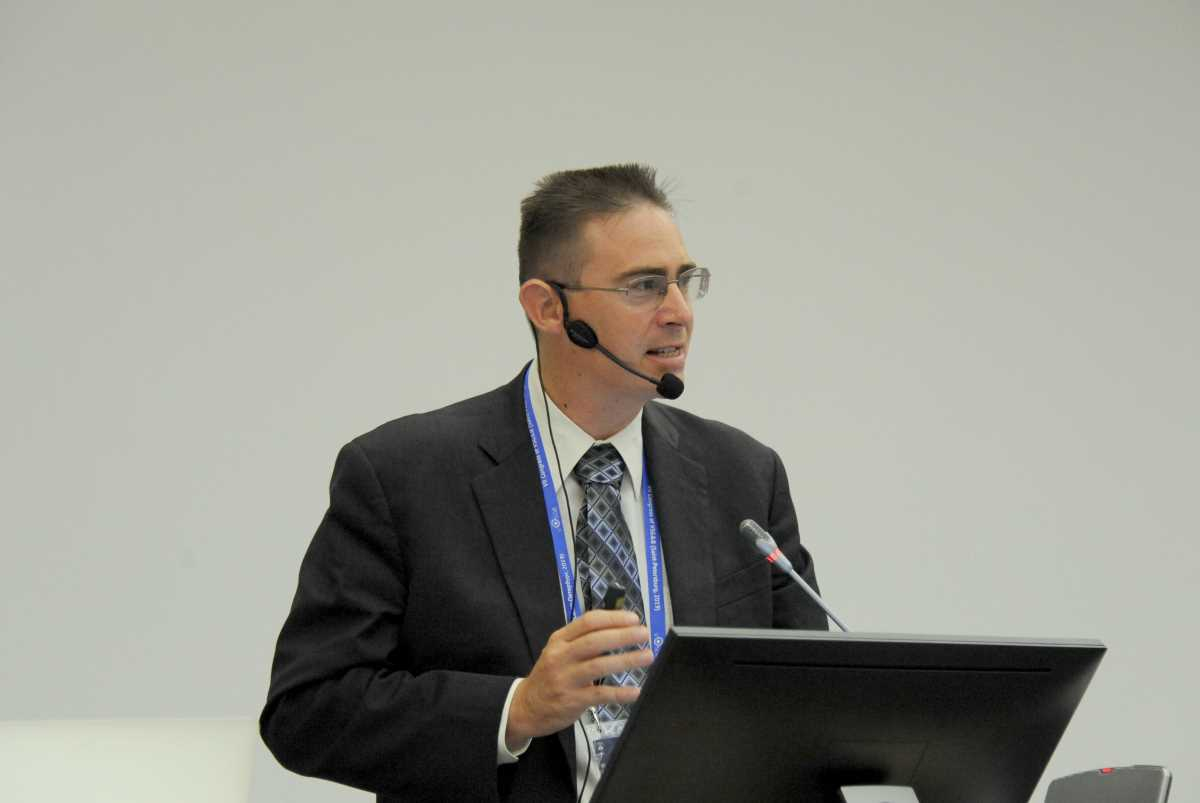The five-day work of geneticists and breeders from all over the world has been summed up

The VII Congress of the Vavilov Society of Geneticists and Breeders (VSGB) has ended at the Mikhailovskaya Dacha campus of St Petersburg University. It was dedicated to the 100th anniversary of the University’s Department of Genetics and Biotechnology.
Summing up the results of the congress, Andrei Fursenko, Assistant to the President of Russia, noted that genetics is the basis of all life sciences. According to him, research in this area helps our society to make a shift to ‘nature-like technologies’ in agriculture, medicine and pharmacology. ‘It is necessary to examine how nature copes with any pathologies and try to use similar algorithms. Thanks to the tools that have fallen into our hands, we can, without violating natural laws, speed up these natural processes of screening various anomalies,’ said Mr Fursenko.
Academician Igor Tikhonovich, Congress Chair, President of VSGB, Dean of the Faculty of Biology of St Petersburg University, noted that this congress was the largest in the history of the Vavilov Society of Geneticists and Breeders.
More than 1,400 experts in genetics, biotechnology and breeding from 33 countries were registered as participants. The average age of participants was only 35 years old, which is very optimistic.
Academician Igor Tikhonovich, Congress Chair, President of VSGB, Dean of the Faculty of Biology of St Petersburg University
At the final plenary session of the congress, Raul Gainetdinov, Director of the Institute of Translational Biomedicine of St Petersburg University, spoke about the possibilities of using genetically modified mice as models of human diseases. ‘Since mice, rats and humans have about 99% of the common genes, rodents are an excellent model for studying the functions of human genes and pathologies. An emerging opportunity to create modified rats makes it possible for scientists to study neuropsychiatric diseases by conducting directed genetic changes in key components of the dopamine, serotonin and glutamate systems of the brain,’ said Mr Gainetdinov.
Additionally, in his report ‘Transgenic animals in experimental pharmacology’, Raul Gainetdinov touched on the use of trace amines and their receptors. These can be targets for drugs for many diseases. A detailed review paper by Mr Gainetdinov appeared in the July 2018 issue of the oldest industry journal – Pharmacological Reviews. It was devoted to the history of the study and classification of new mechanisms of signal transmission from cell to cell in the human body.
The human microbiome was reported by Rob Knight, a distinguished microbiologist and professor of the University of California (San Diego, the USA). He was one of the first scientists to begin studying the microbes that live in the human body and have a significant impact on health.
39 trillion
various microorganisms are present in the human body according to the latest estimates. The human body itself consists of about 30 trillion cells.
Researchers also compared the human DNA and the DNA of microbes contained in the human body. According to Professor Knight, there are about 20 thousand human genes in our body compared to up to 20 million microbial ones.
All in all, as part of the VII Congress of the Vavilov Society of Geneticists and Breeders, 400 scientists gave oral reports and more than 600 researchers took part in the poster session. In addition to the plenary sessions, there were 19 symposia and three roundtables. There were also two associated conferences: the third international conference BiATA-2019 ‘Bioinformatics: from Algorithms to Applications’; and the international conference ‘Breads of the future: genomics, genetics, breeding’, commemorating the 125th anniversary of the Vavilov all-Russian Institute of Plant Genetic Resources.

